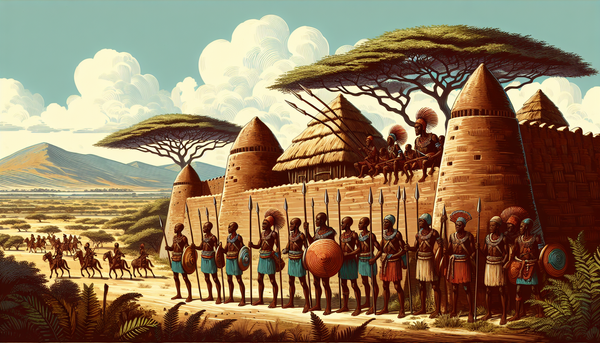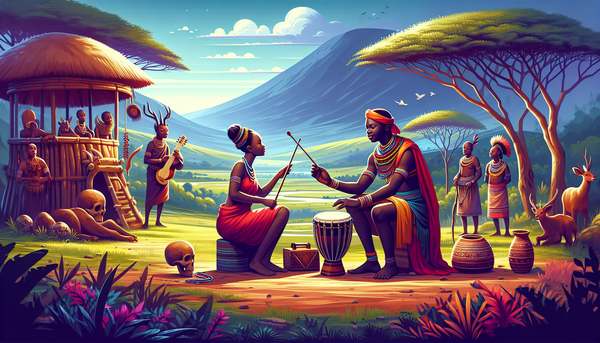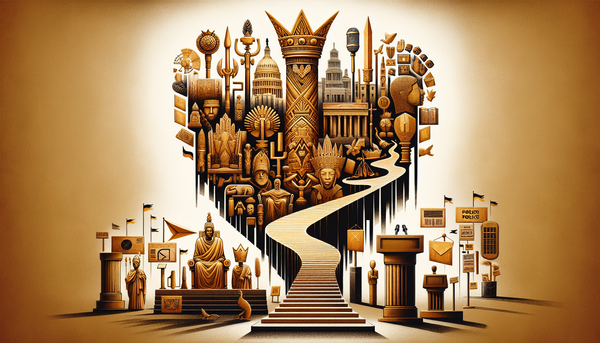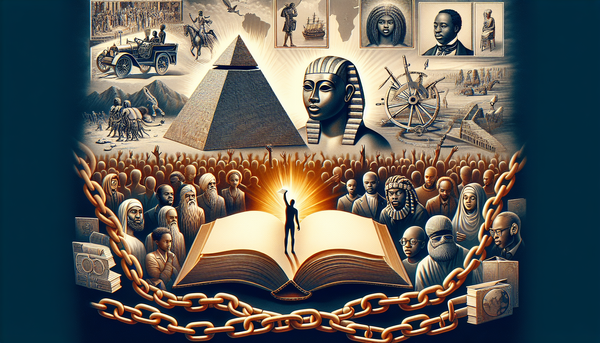The Role of Traditional Healers in African Communities
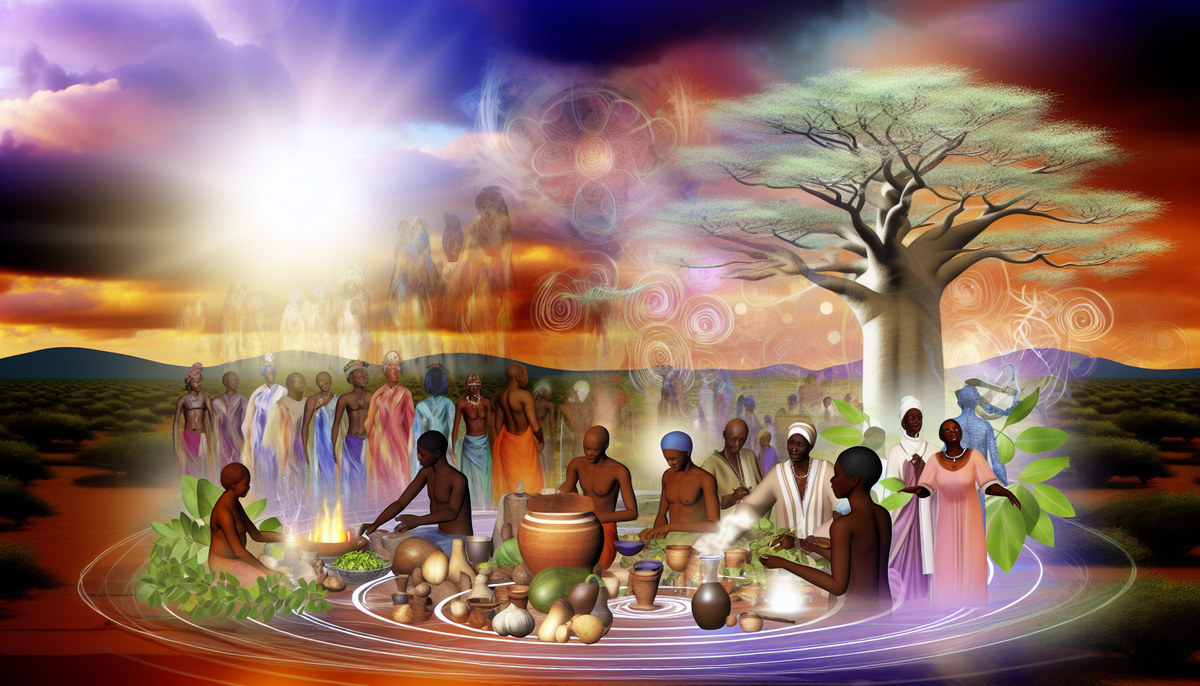
Historical Significance of Traditional Healers in Africa
Traditional healers have played a crucial role in the health and wellness of African communities for centuries. Rooted in ancient practices, these healers serve as custodians of indigenous knowledge, combining spiritual, herbal, and holistic approaches to address physical and mental ailments. In pre-colonial times, they were often the primary source of medical care, guiding individuals through sickness, emotional distress, and social issues.
Their significance extends beyond mere healthcare; traditional healers are intertwined with the cultural and spiritual fabric of their communities. They conduct rituals, ceremonies, and divinations that reinforce social cohesion and cultural identity. Knowledge passed down through generations—often through oral traditions—constitutes a rich heritage that continues to influence contemporary practices.
With the advent of Western medicine, traditional healers faced challenges and skepticism. However, their deep understanding of local plants and diseases remains invaluable, especially in rural areas where access to modern healthcare is limited. Studies have shown that many people still prefer traditional healers, valuing their empathy and holistic approach. Thus, traditional healers not only represent a connection to Africa's past but are also vital in navigating health challenges in the present. Their historical significance continues to resonate, shaping the future of healthcare across the continent.
Cultural Practices and Rituals
Cultural practices and rituals surrounding traditional healing are deeply entrenched in the daily lives of many African communities. These practices often serve as a bridge between the physical and spiritual worlds, fostering connections among individuals and their ancestors. Traditional healers utilize a variety of rituals, which may include prayers, dance, and offerings to invoke spiritual guidance and support in the healing process.
One common practice is the use of herbal remedies, crafted from local plants believed to possess medicinal properties. The preparation of these remedies can be accompanied by rituals that honor the spirit of the plant and seek the healing spirit's blessings. In many cultures, the healing process involves not only the body but also the mind and spirit, emphasizing a comprehensive approach to well-being.
Rituals often include community participation, reinforcing social bonds while promoting collective healing. Celebrations of life events, such as births or marriages, frequently involve traditional healers, underscoring their role in significant cultural milestones. These ceremonies help to preserve communal identities, promote resilience, and instill a sense of belonging.
In essence, cultural practices and rituals surrounding traditional healing encapsulate the values, history, and beliefs of African societies, illustrating the importance of holistic health in their worldview.
Impact on Modern Healthcare Systems
The influence of traditional healers on modern healthcare systems in Africa is both profound and multifaceted. With a significant portion of the population relying on traditional healing practices, especially in rural areas, these practitioners often serve as the first point of contact for medical care. Their deep understanding of local health issues and culturally sensitive approaches make them vital contributors to community health.
Moreover, traditional healers often work collaboratively with modern healthcare professionals, creating a complementary system that enhances patient care. This integration allows for a more holistic approach to health, addressing not only physical ailments but also mental and social factors affecting well-being. Studies have indicated that patients utilizing both traditional and modern services report improved health outcomes due to the combined strengths of both systems.
As health authorities recognize the value of traditional healing, policies are evolving to formalize training and establish regulation for traditional healers. This aims to ensure safe practices and better communication between healers and healthcare providers. Ultimately, the impact of traditional healers on modern healthcare systems highlights the need for inclusive strategies that respect cultural practices while promoting improved health for all individuals, bridging gaps, and fostering greater community trust in health initiatives.
Training and Knowledge Transmission
Training and knowledge transmission are central to the practice of traditional healing in African communities, serving as crucial mechanisms for preserving indigenous medical practices. Unlike formal education systems, the training of traditional healers often occurs through informal apprenticeships, where knowledge is passed down orally from experienced healers to novices. This mentorship not only imparts clinical skills but also encompasses spiritual teachings, ethical guidelines, and the cultural significance of healing.
Trainees typically immerse themselves in their mentor's practices, learning to identify medicinal plants, understand their uses, and master the rituals associated with healing. This process fosters a deep respect for nature and the spiritual dimensions of health. Additionally, it ensures that culturally relevant practices remain intact, even as they adapt to contemporary challenges.
In some regions, organizations and institutions are recognizing the importance of these traditional practices by developing programs that formalize training. These initiatives aim to bridge the gap between traditional and modern medicine, facilitating knowledge exchange and mutual respect among practitioners. By integrating traditional healing into formal healthcare frameworks, societies can enhance the quality of care provided, ensuring that valuable herbal remedies and cultural wisdom continue to enrich healthcare systems while empowering future generations of healers.
Integration with Contemporary Medicine
The integration of traditional healing practices with contemporary medicine represents a progressive approach toward achieving comprehensive healthcare in Africa. As traditional healers are often the first point of contact for many patients, combining their knowledge with modern medical practices can enhance health outcomes and community trust in healthcare systems. This integration acknowledges the strengths of both modalities while offering a more holistic approach to patient management.
Several healthcare initiatives have begun to recognize the value of traditional healing practices. Collaborative programs allow healthcare professionals to work alongside traditional healers, facilitating knowledge exchange and mutual understanding. This not only empowers traditional practitioners but also provides modern healthcare workers with insights into culturally relevant health practices.
Additionally, research into the efficacy of traditional remedies has sparked interest in incorporating herbal medicines into modern treatments. Regulatory frameworks are being developed to ensure the safe use of these remedies alongside pharmaceutical options, promoting evidence-based practices.
Ultimately, this integration fosters a patient-centered approach, accommodating individual preferences while addressing the social, cultural, and economic factors that influence health. By embracing both traditional and contemporary paradigms, health systems can create a more inclusive model of healthcare that respects cultural heritage and meets the diverse needs of communities.
Regulatory and Legal Perspectives
The regulatory and legal landscape surrounding traditional healing practices in Africa is complex and varied, reflecting a nation’s unique cultural, historical, and healthcare contexts. Many African countries recognize the importance of traditional healers and their contributions to community health, leading to a push for regulatory frameworks that govern their practices. These regulations aim to ensure the safety, efficacy, and ethical standards of traditional healing, helping to bridge the gap between traditional and modern medicine.
Countries like South Africa and Tanzania have established formal recognition of traditional healers, creating legislative measures that allow for their integration into the national healthcare system. Such laws often include guidelines for training, licensing, and monitoring practices, promoting collaboration with conventional health systems.
However, challenges remain, including the need to balance cultural heritage with public safety. Issues of intellectual property rights over traditional knowledge and herbal medicines also arise, necessitating legal protections for indigenous practices and resources. Additionally, there is ongoing debate about maintaining cultural authenticity while ensuring that traditional practices align with modern healthcare standards.
Ultimately, effective regulatory and legal frameworks are essential to sustain and formalize the role of traditional healers, fostering partnerships that enhance health outcomes while respecting cultural identities.
Future Prospects and Innovations
The future prospects for traditional healing practices in Africa are ripe with opportunities for innovation and collaboration, particularly as the world increasingly recognizes the value of holistic health approaches. As awareness of the synergy between traditional and modern medicine grows, there is significant potential for research and development aimed at validating traditional remedies through scientific methodologies. This could lead to new treatments and therapies, thereby enriching the arsenal available in contemporary healthcare.
Innovations in technology, such as telemedicine and mobile health applications, can also facilitate better communication between traditional healers and patients, allowing for enhanced health tracking and management. Integrating digital tools can help bridge the information gap, providing traditional healers with access to valuable resources and training materials.
Furthermore, policies aimed at fostering partnerships between traditional and modern medical practitioners can create more inclusive healthcare systems. Collaborative research initiatives can lead to the development of new herbal formulations that meet the standards of modern pharmaceutical practices.
As globalization continues to influence healthcare systems, the recognition and preservation of traditional knowledge will become increasingly important. By embracing innovation while respecting cultural heritage, the future of traditional healing holds promise for enhancing overall health outcomes, creating a more culturally competent healthcare landscape that benefits all.
